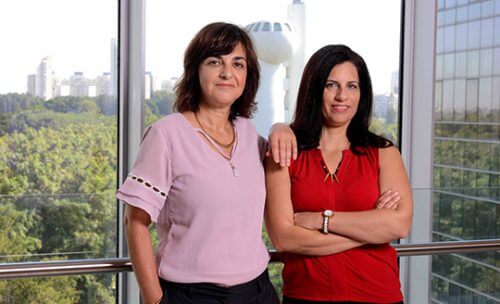Weizmann Institute scientists have identified molecules that may block the expression of the mutant gene that causes Huntington's disease

When Prof. Rebecca Dickstein from the Weizmann Institute of Science began researching a protein involved in the control of inflammatory gene expression, she did not imagine that she would come across a new path that might lead to the development of a cure for Huntington's disease. Prof. Dickstein's group, in the Department of Biomolecular Sciences, focused on a protein called Spt5, which takes part in controlling the transcription of DNA for the production of proteins. The scientists found that Spt5 is especially necessary for the expression of inflammatory genes that are activated within a very short time, a range of minutes, from the moment the signal is given to activate the inflammatory response, and therefore plays a central role in the speed of the inflammatory response.
While working on this research at the institute, scientists elsewhere discovered that Spt5 plays a significant role in Huntington's disease - a hereditary syndrome caused by repeated duplication of a certain DNA segment in the gene called huntingtin. Expression of this gene in its mutant form leads to the creation of a defective protein which gradually damages the brain and leads to neurological deterioration and eventually death. Following the discovery, it occurred to Prof. Dickstein that it might be possible to treat Huntington's disease and prevent the expression of the mutant gene that causes it, using a drug that blocks Spt5.
In a study that was recently published in the scientific journal Molecular Cell, Dr. Anat Bhatt, a faculty scientist in Prof. Dickstein's group, searched for small molecules capable of blocking the activity of Spt5. The members of the group examined about 100 molecules and identified 18 of them that bind directly to this protein. Spt5 is a large-sized protein with many binding sites, and therefore the detected molecules can bind to different sites on this protein. This multiplicity leads to the fact that while some of the molecules block all the known functions of Spt5 - some of them block only selected functions. For example, two of the molecules exclusively blocked the expression of the mutant huntingtin gene, but did not block this gene in its healthy form, nor genes involved in inflammatory conditions.
In the current study, the scientists showed that the blockade works in nerve cells of mice grown in a dish in the laboratory. If the findings are also supported in experiments on laboratory animals and then on humans, they may lead to the development of a cure for Huntington's disease or even its prevention.
"The targeted biological activity of the small molecules may help us influence certain aspects of Spt5's function without harming its other functions," says Prof. Dickstein. "Apart from Huntington's disease, these molecules can also help us develop anti-inflammatory drugs, and they can also serve as a tool in further research to understand Spt5 activity in the transcription process." In fact, in this study Prof. Dickstein's group has already used these molecules to reveal additional control functions of Spt5 that were not known before: the researchers discovered that this gene is involved in the control of cell division, and that it regulates the expression of a metabolic hormone that controls appetite and body weight. These findings open new research directions with possible applications.
Or Lahav from the Department of Biomolecular Sciences, Dr. Alexander Plotnikov from the Israeli National Center for Personalized Medicine named after Nancy and Steven Grand, and Dr. Dina Leshkowitz from the Institute's Department of Life Science Research Infrastructures participated in the study.
The prevalence of Huntington's disease in the West is about 5 to 7 cases per 100 people. In Asian and African countries the disease rate is much lower, in Japan for example it is 1 in 200 thousand people.
More of the topic in Hayadan:
- Huntington's paradox: how an essential gene causes a fatal disease
- Researchers have grown a human blood-brain barrier outside the body, in a way that makes it possible to predict the penetration of drugs into the brain in a customized way
- A mechanism was found that may explain over 30 genetic diseases
